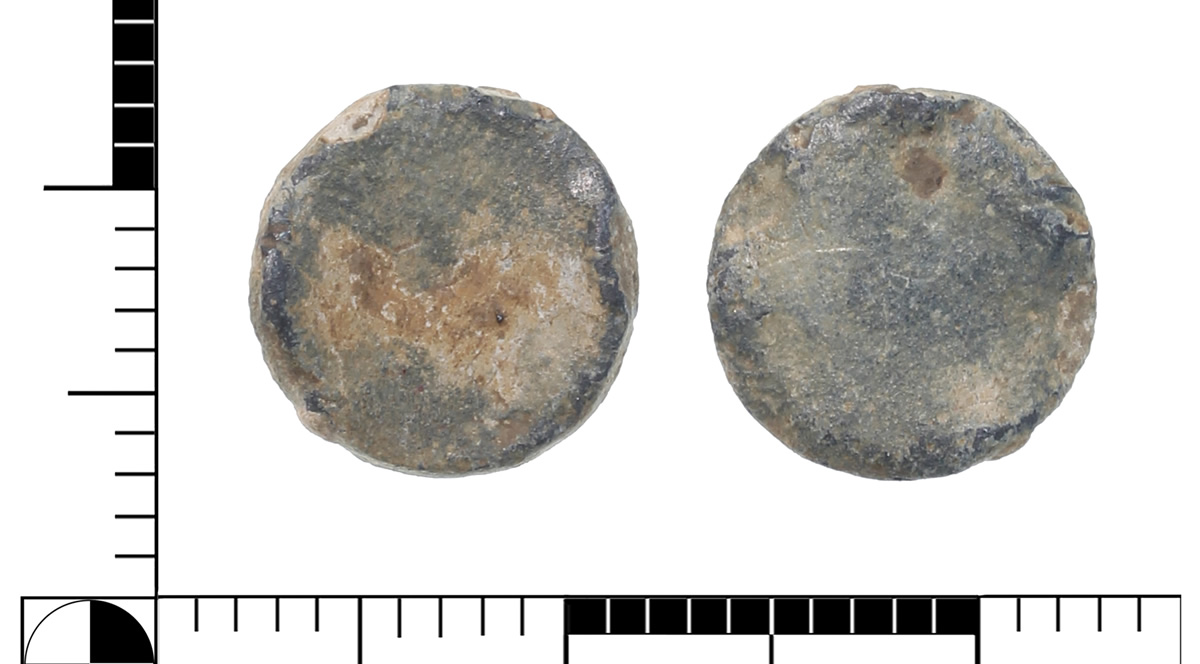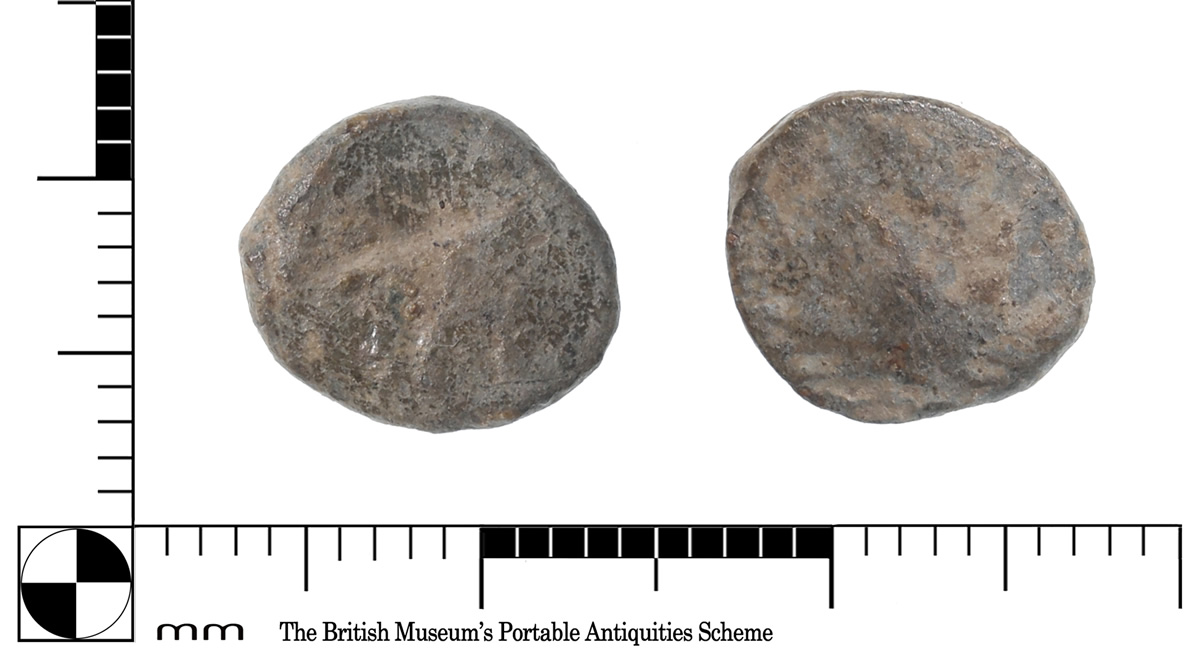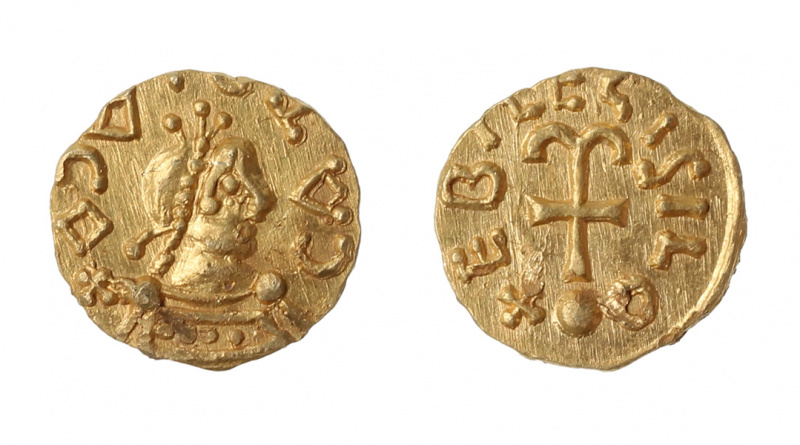“Unique” Peckham hoard declared treasure
A small hoard of four gold tremisses and two lead weights were declared treasure on Wednesday (13 July 2022). It’s the two lead weights that take this from being a great detecting find to something that is hugely significant. It is a unique find in Britain and possibly Northern Europe and it is hoped that the site might yield more important finds.
The hoard was found on 18 September 2020 by detectorist David Callow in a field near East Peckham, Kent.
Hoard
All four coins have been designated as Finds of Note. They are from different kingdoms and dates. This is not unusual for 7th century hoards as the economy was a bullion-based system, with value primarily determined by weight rather than face value.
Coin 1
PAS: KENT-83515A
Appears to be an unrecorded variant of the National/mint and moneyer series produced c. AD 590-670.
Obverse reads BETONE giving the moneyer as Bettone. The reverse reads +SCLL[NEC]LIS (retrograde) giving the mint as Silvanectes, (now Senlis in northern France).
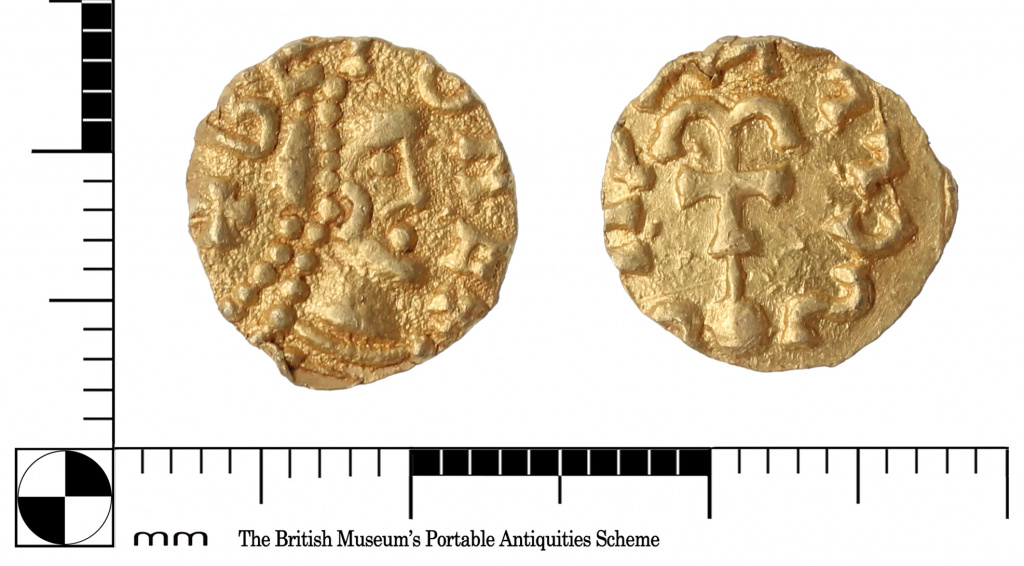
Image: Kent County Council CC By SA2.0
Coin 2
PAS: KENT-83554C
Same series and dates as coin 1 but this time minted in Catolacus (now Saint-Denis) as shown by CATOLACO on obverse. There has been significant finishing to the die. Both known comparable coins have either a piercing or attachment points.
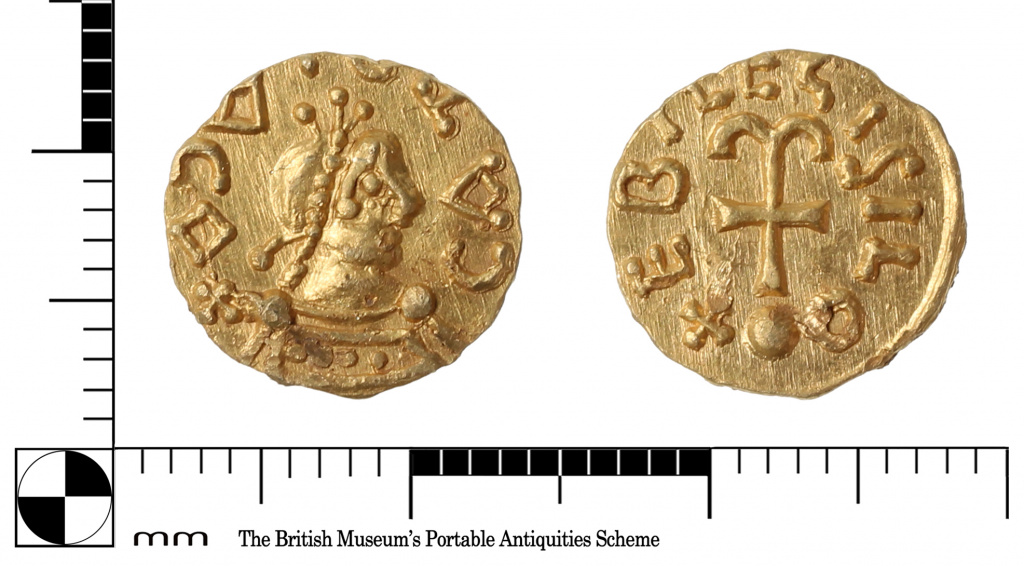
Image: Kent County Council CC By SA2.0
Coin 3
PAS: KENT-672C14
Known as a “pale shilling” of the “Two Emperors” type dating to AD 650-70 minted in either East Anglia or Kent.
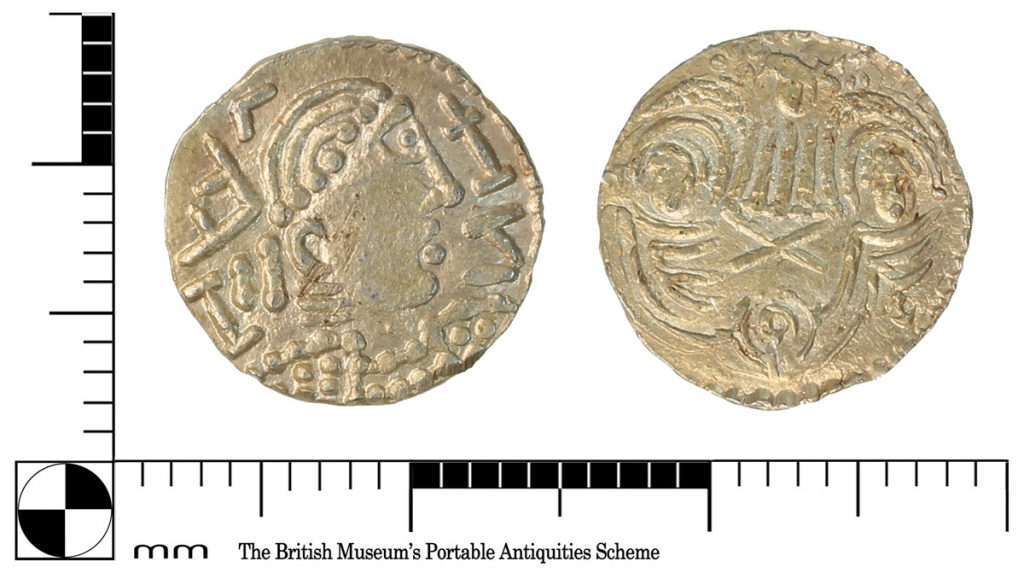
Image: Kent County Council CC By SA2.0
Coin 4
PAS: KENT-687A04
Thought to date to AD590-670 this coin is of uncertain origin. The treasure report says “The lack of inscription and relatively crude design also have some resemblance to some of the anonymous issues in the Crondall hoard, which contains a mixture of Anglo-Saxon, Frankish and Frisian coins, and it is possible that this is an Anglo-Saxon or Frisian coin derived from a Frankish prototype, rather than an official Frankish issue“
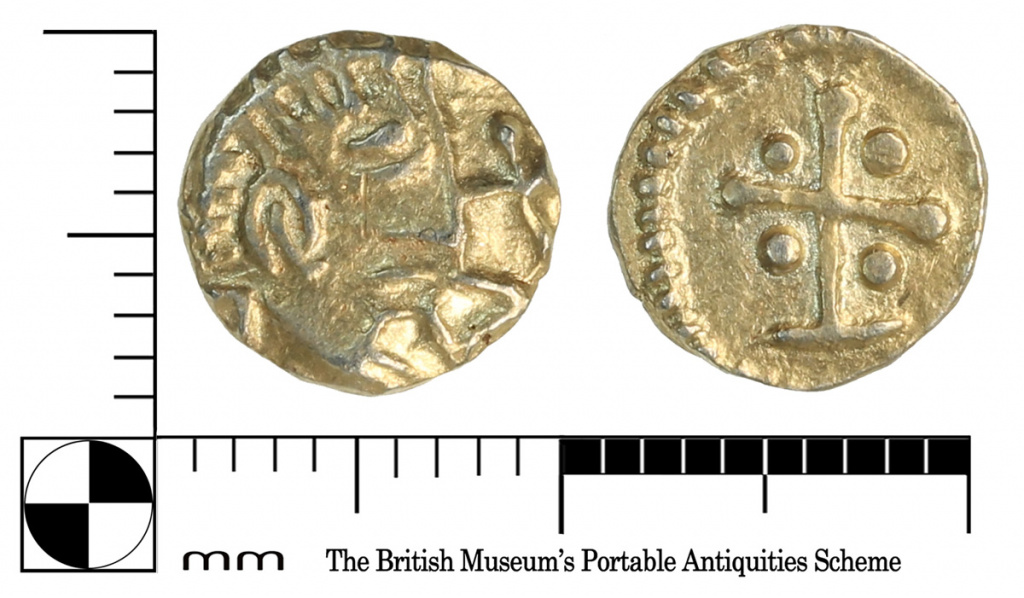
Image: Kent County Council CC By SA2.0
Weights
Two lead weights were found close to the coins (PAS KENT-689A2D and KENT-688E85) . They are both of a similar size and almost the same weight (within 0.04g) as the tremissis. This suggests that that they were very probably tremissis weights for use in the bullion economy. Weights for this purpose have not previously been identified with certainty. The FLO, Jo Ahmet said “Having that direct association between the coins and the weights makes this a unique find, possibly unique in Northern Europe and certainly in Britain“
Jo added “The lead objects show it maybe belonged to someone who’s active in the economy. There’s always potential that there’s more buried there, but we would expect other finds. The potential is we are looking at a significant site. If you’re looking at a site owned by an important lord, you’d need to start pulling out more early Saxon coins and things like brooches. At the moment we’ve got four gold coins and some bits of lead, so we can’t make assumptions, but this is why I’m keen to keep working with David to see if we can work out what was going on here.“
